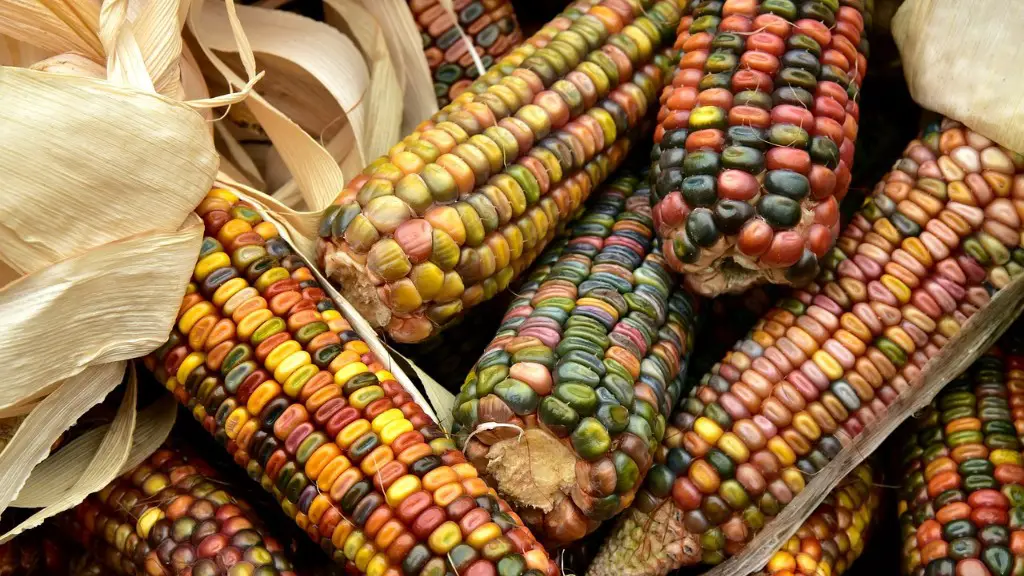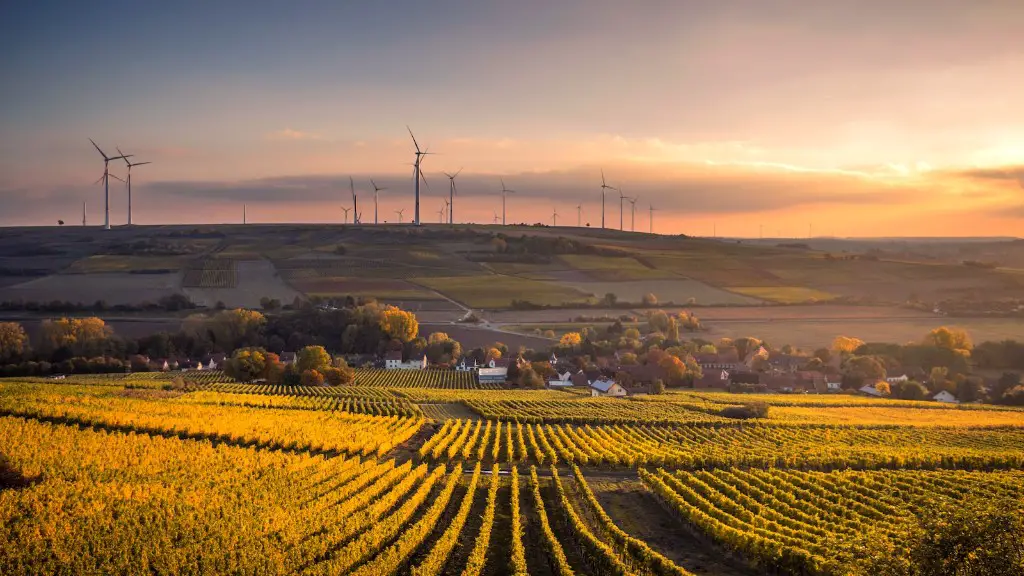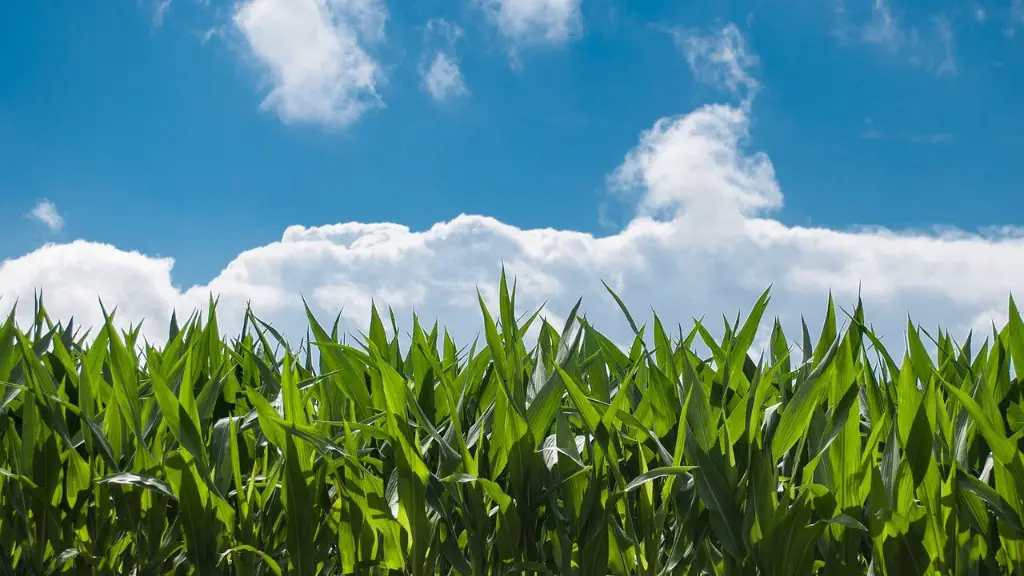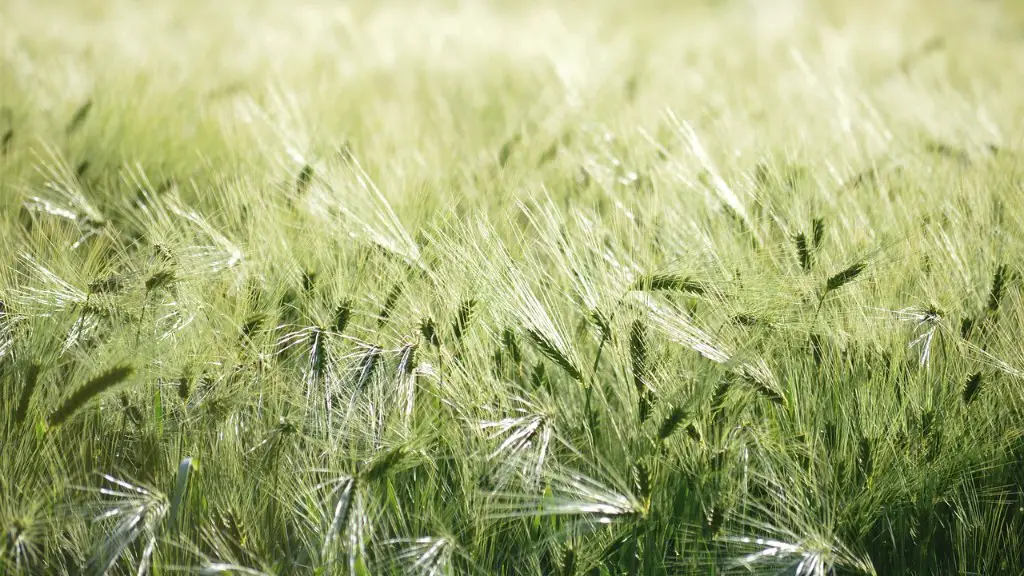Sustainable agriculture brings the best out of both worlds – it not only contributes to a healthier environment but also promises sustainable farming practices. Traditional ways of growing crops lack the scientific precision and can be wasteful when it comes to resources, making such strategies outdated and unsustainable. Achieving sustainable agriculture requires a combination of strategies for proper land management and resource utilization. By following certain guidelines, sustainable agriculture can be achieved to benefit both the environment and agricultural production. Here are seven steps to achieving sustainable agriculture.
Ensuring the efficient utilisation of resources is the first step to sustainable agriculture. By learning more about biology, soil science, and ecology, farmers can better select and use crop-appropriate fertilizers, irrigation systems and other technologies that ensure responsible resource management. Moreover, cloud-based software can also assist in managing resources, energy and other inputs.
Encouraging the use of content-appropriate tools, techniques and plant varieties is necessary. This includes exchanging traditional practices with modern techniques by using advanced technologies, such as computer-assisted soil sampling, weather forecasting and precision agriculture. This can help plan the right amount of resources to be utilised, making the process more efficient.
The use of integrated pest management, which combines pesticide and non-chemical pest management techniques, can provide farmers with greater control of the pest population. This can reduce the use of harmful and unsustainable chemical pest control. Additionally, farmers should use sustainable land management techniques, such as crop rotation and cover cropping, to control pests and diseases. Furthermore, compost and cover crops help with soil fertility and support ecosystem services.
Promoting increased education for farmers and agricultural students is another way to ensure sustainable agriculture. Comprehensive education that includes topics such as water conservation, animal welfare, and sustainable soil management, to name a few, can help farmers make these practices a reality. This further encompasses understanding the importance of policy changes, international trade and public outreach which are integral for mobilizing communities and governments.
One should also recognize and reward best practices. This includes providing incentives to educate and develop a series of global standards that recognize farmers who adopt sustainable agricultural practices and principles. This will result in a greater understanding and global acceptance of sustainable farming principles.
Finally, encouraging the formation of local networks, associations, and cooperatives can support small farmers by providing access to resources and markets. These networks will further allow the exchange of agronomic information which is essential in achieving sustainability.
Land Management:
Land management is a key component of achieving sustainable agriculture. This is because if the soil of a farm, or the land being farmed, is not managed properly, it can be susceptible to erosion and other degradation problems. The use of soil conservation and land management strategies, such as crop rotation, terracing, cover cropping, can improve soil fertility and reduce erosion. Additionally, no-till and conservation tillage practices help to minimize soil disturbance, reduce erosion and conserve soil moisture.
Farmers can also use the latest mapping and GPS technologies to improve land management practices. These technologies can help farmers create plans to delineate zones of land that can be used for specific purposes such as crop rotation, grazing and water retention. Moreover, careful monitoring such as energy input/output and pest population can help improve land management.
Not just on the farm but industries can also help in sustainably managing land. Industries can provide financial and technical support to farmers to help them take the right measures to protect the environment. Industries can also help promote policies and incentivize sustainable land management practices.
Overall, efficient land management is a powerful tool to achieve sustainable agriculture. By ensuring that land is managed wisely and efficiently, sustainable agriculture can be achieved with greater levels of success.
Water Management:
Water management is an important component of sustainable agriculture. It’s essential that farmers become aware of how water can be managed sustainably at the farm and regional levels. This can include ground and surface water conservation methods such as contouring, crop distribution, and making use of water-harvesting systems.
Farmers should also strive for increased water-use efficiency, by building smaller dams, utilizing drip irrigation and other micro-irrigation systems, and using mulching techniques. These techniques can help reduce water runoff and effectively conserve water.
Water management also includes understanding the impact of water pollution on the environment and on farm productivity. The use of chemicals, nutrients, and other pollutants can have an adverse impact on soil health, water quality, and other ecosystem services. Hence, it is essential to reduce the use of contaminants, such as fertilizers, and ensure that all contaminants are properly disposed.
Overall, proper water management is paramount for maintaining a sustainable agricultural system. The right combination of techniques and technologies can help farmers to achieve the sustainability objectives.
Organic Farming:
Organic farming is something that any sustainable agriculture system should strive to achieve. Organic farming is a system of agriculture that utilizes natural processes and principles such as crop rotation and companion planting to increase soil fertility, while minimising the use of synthetic inputs. This can not only improve the health of plants and soils, but also provide a greater yield and improve the overall quality of agricultural products.
Organic practices provide many benefits, such as reducing soil degradation, increasing biodiversity, and reducing water runoff and pollution. Furthermore, organic farming practices replenish and protect natural resources, improving the environment and providing greater food security.
By utilising an integrated approach, organic farming systems can be improved upon. This includes activities such as soil and water conservation, integrated pest management, and the use of cover crops and composting. Integrated farming combines the best of both traditional and scientific methods, providing a balance between nature and technology.
Overall, organic farming offers a great opportunity for farmers to become more sustainable and improve their agricultural productivity. By following these practices, farmers can help build a more sustainable agricultural system that has long-term gains for the environment and their agricultural production.
Waste Management:
Waste management is a key component of any sustainable agricultural system. Sustainable land and water management reduces the amount of waste produced, but other strategies must be employed to minimize the amount of waste being generated. The best way to achieve this is to recycle and reuse waste, instead of disposing it.
Waste management techniques can include composting, utilising water tanks to collect rainwater and then reusing it, green manuring and crop rotation. Composting is an incredibly effective way to manage waste, as it helps reduce the amount of solid waste being sent to landfills and can also be used to enhance soil fertility. Furthermore, farmers can also utilise solar-powered devices to reduce energy consumption and save money by utilising recaptured resources.
Farmers should also use advanced technologies, such as monitoring systems, to analyse and monitor the amount of waste being generated. This can help identify areas of need, and farmers can then take the appropriate steps to ensure that waste is properly managed.
Overall, proper waste management is an essential part of sustainable agriculture. By utilising the right techniques and technologies, farmers can ensure that waste is managed responsibly and sustainably.
Greenhouse Gas Reduction:
Reducing greenhouse gas (GHG) emissions is an important component of sustainable agriculture. While some GHG emissions may be unavoidable, farmers can employ certain strategies to reduce their GHG footprint. This includes practices such as ploughing, cover cropping and no-till farming, and reducing or eliminating the use of chemicals and fertilisers.
The use of energy-efficient technologies and renewable energy sources can also help reduce emissions. This includes solar-powered irrigation, LED lighting, and other energy-efficient devices. Additionally, farmers should consider using low-emission vehicles, such as electric or biodiesel powered tractors.
One should also promote the use of regenerative farming practices, such as agroforestry and conservation tillage, which have been demonstrated to reduce GHG emissions. Additionally, the use of carbon capture and sequestration technologies can help capture and store GHGs, thereby reducing their impact on the environment.
Overall, reducing GHG emissions is an important part of achieving a more sustainable agricultural system. By following the right strategies, farmers can help to reduce their environmental impact and ensure a more sustainable future.




